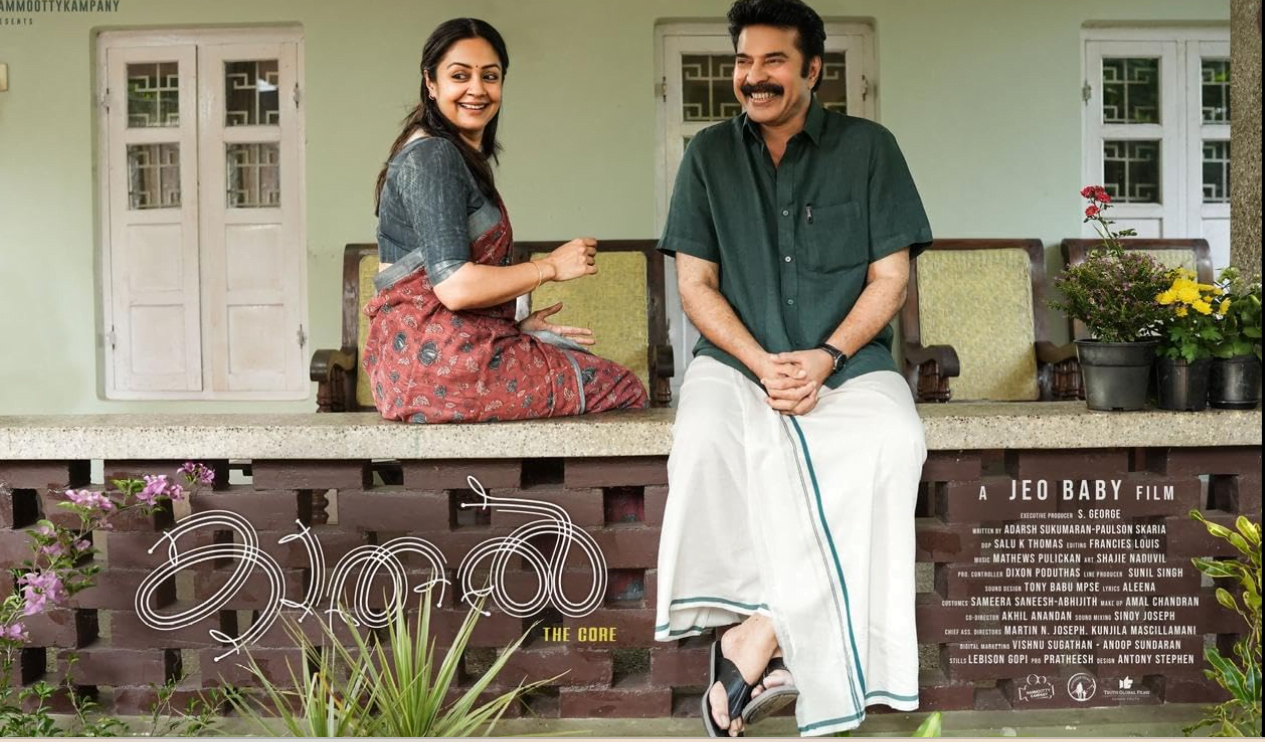Spoiler Ahead!
Jeo Baby, who has gifted the film industry with a thought-evoking “The Great Indian Kitchen,” that made some Indian households revisit their kitchen and unveil the realities, made another revolutionary attempt with the film “Kaathal: The Core.”
Kaathal hit the theatres on 23rd November, and ever since it has been unfolding the many layers of the relationships to the core of love, pain and freedom of life where you can rightfully say it is the long-awaited queer drama, we all needed, in all its glorious justice.
As the title rightfully says, the film deals with the core element of a topic that is still considered taboo, about the two central characters, a couple, Mathew Devassi (played by Mammooty) and his wife Omana (played by Jyothika), unmasking the sexual orientation of one of the partners in a ‘fictional,’ marriage set up.
Kaathal shows shattering societal barriers starts from within
The male protagonist Mathew Devassi is supposedly a well-educated, well-appreciated man and a politician in a small town in Kerala, living with his wife Omana, his father and their college-going daughter Femi.
On the surface level, this is an ideal marriage set up with no issues in their long-term relationship, this is what we see, the society through the lens of a fictional and conventional concept of how it should be. Well, Kaathal dares you to second guess the notion by slowly unveiling the emotional turbulence each character is going through. The core of the film is slowly unmasked, with utmost empathy and clarity. The breaking conversations start from within, within the households.
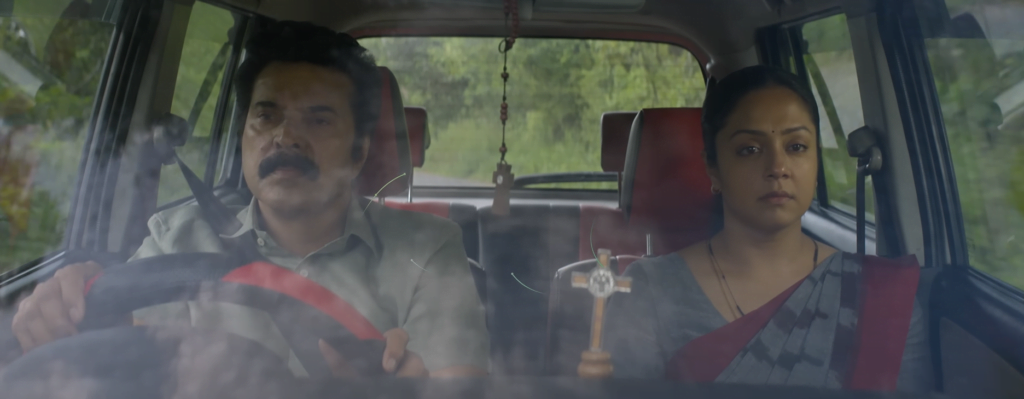
We see at the time right before Mathew is set to contest in the local body elections when Omana petitions for divorce alleging that he is gay and is committed to Thankan, a driving tutor. People begin to make assumptions about Mathew’s sexual orientation because of the media coverage and public attention and Omana herself seemed pressured to choose a compromise to not get the elections affected.
After this incident the story slowly unfolds the truths, calling out the homophobic section of the society, and their treatment towards the people, especially Thankan. At a time when the political image is intertwined with the divorce reasons, we see how numerous people are in support of Mathew as a politician and an individual before he accepts his sexual orientation. This shows there is still a section of society who irrespective of their understanding of the matter are nevertheless respecting his choices, privacy and his ideals.
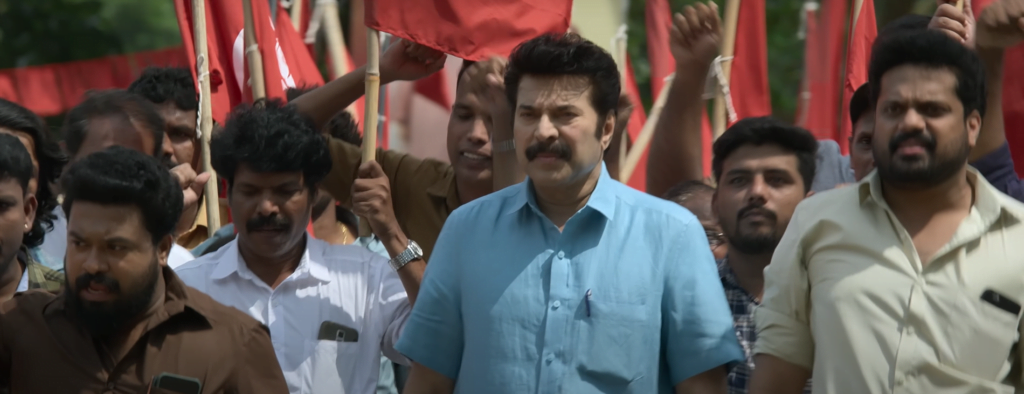
The ultimate vision of the film also appears to indicate that there is a need to learn and unlearn about sexual orientations and rethink the reality we live in, especially the individuals who are living a double life in fear of society with repressed battles every day and the people surrounding them who have forced them to settle for it.
Moving beyond taboo to the core of human emotions
Undoubtedly the brave attempt of the director to showcase the complex emotions of human reconciliation, Kaathal hit the core of the society through many levels. We see how Mathew and Omana, despite living in a fictional marriage for two decades, develop an enduring affection with one another that leaves nothing but a void in each other’s lives. She is a woman who not only wants to free herself from the turmoil she has been facing for the past 20 years but also save her husband from the emotional turbulence he goes through, by putting an end to the double life he got settled into.
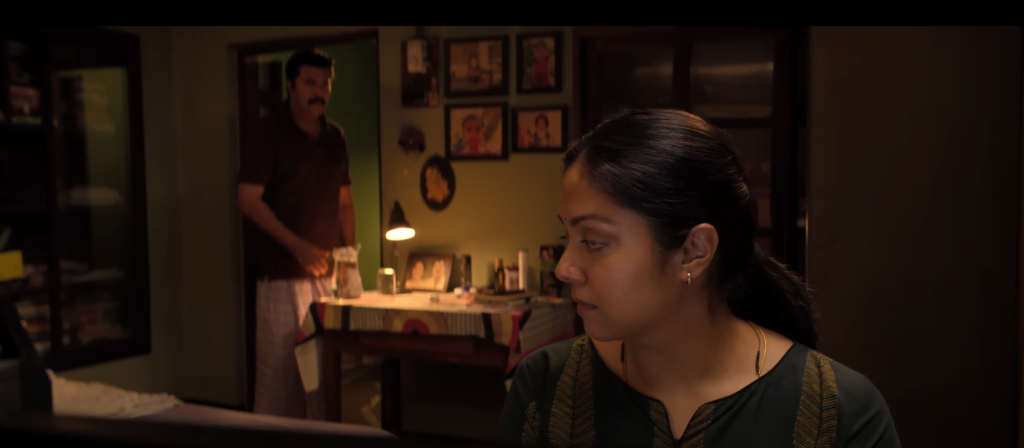
Through Omana, the makers of the Kaathal shake the core question in the society demanding the rights of individuals to live a life that is not of shame but of dignity and freedom irrespective of their gender and sexual orientation.
No, there are no more lies to be told when she claims to get a divorce, there is no grudge or blaming mentioned, and it is nobody’s fault, with the helplessness of the man and the clarity of the woman, the freedom they aspire in life through after decades of being together in a loveless marriage, everything is said out loud here.
Omana deserves a life that is fulfilling, with a person who accepts her and not someone who has to settle for her. Mathew deserves a life that is not a hopeless lie, one where he can embrace himself and the one, he loves with no fear of abandonment. Thankan deserves a life that is not hideous, as his name suggests, he deserves to be loved, treasured like gold, and not sidelined. The father at least hereafter can live with a heart that is not filled with guilt.
The beautiful bond between the father-in-law and Omana, irrespective of the stranded lie they pretended to believe finally gets out of their heart because they are eventually choosing to stay true to their hearts.
The portrayal of same-sex relationships
After watching the mega actor Mammooty in many films across different languages with his solidified masculinity portrayed on the screen, the portrayal of Mathew Devassy as a man who never shows insecurity in his masculinity and who finally embraces vulnerability can be a rare sight in the film industry. The treatment of portrayal of all these characters sensitively with empathy is where the film raises the bar.
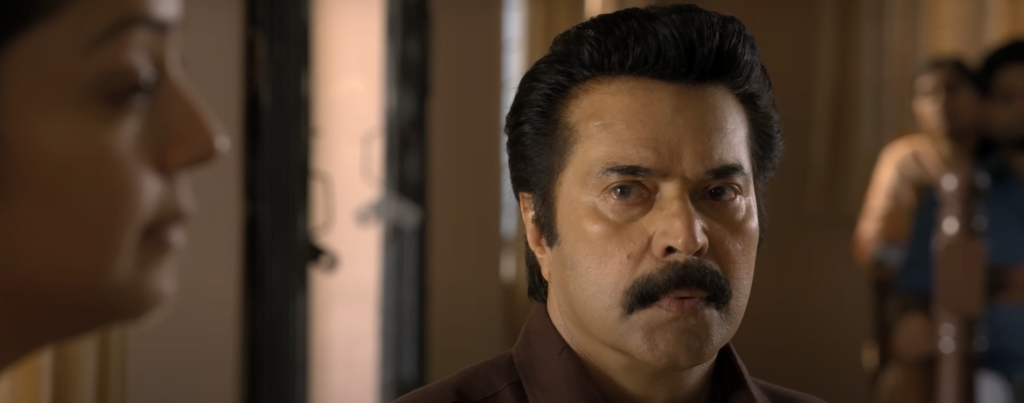
Not force-fitting the idea, not shoving it to the audience, but showcasing it with the true essence of the pain, guilt, numbness, love and several such emotions through different characters, this film makes many who have not yet brought themselves to think about the notion of sexuality.
The film industry has misguided the viewers in the portrayal of the queer community before. There have been several films in the past that showcased queer characters as a subject of mockery, with problematic gender politics in various layers, taking a few names like Chaandhupottu (2005) directed by Lal Jose, being nothing short of a “joke,” My Life Partner a film directed by M.B Padmakumar, in an attempt to portray a story of two gay couples finally moving to a tragical ending adhering to the inhumane homophobic beliefs. It has been mostly a mockery of true emotions or reinforcing the conventional idea that anything other than heterosexuality ends in tragedy.
If this can be a first step in unlearning many, from the stigma attached to the thought of the notion, then there comes the film’s true success which is evident in the ongoing conversations about the film.
How Kaathal is nothing short of a triumph in initiating the conversation
Omana’s repressed emotional battles make contemporary viewers especially the women question whether or not a woman should constantly hide their qualms behind a mask of respectable decency to protect other people. However, Jyothika handles Omana’s suppressed chaos in delicate ways that she turns a story of separation into a love tale that, on occasion, even long-term, healthy couples may only hope to experience.
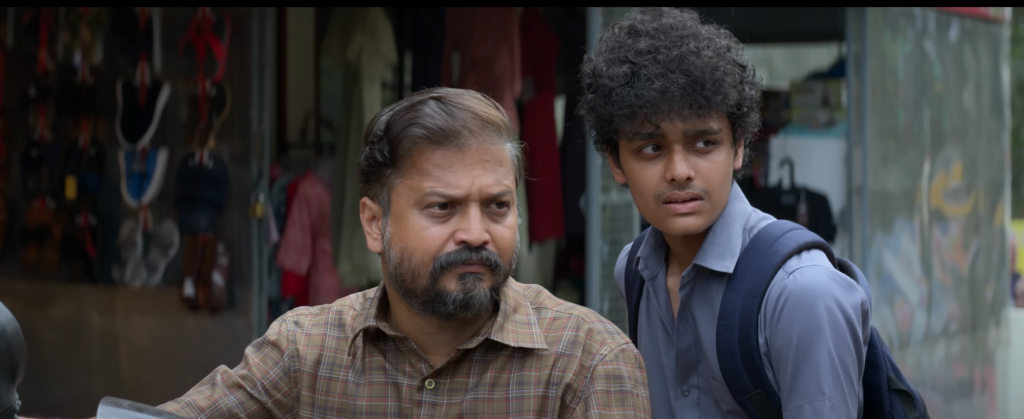
The film’s treatment of the subject is to derive a better understanding of most people who are still hesitant to accept same-sex relationships. The statements in the film are nothing like an out-of-context awareness, rather Kaathal chose to play the role of an observer, only bringing to light the different facets of the problems that arise from the absence of acceptance, as opposed to having actors perform innovative things on film.
Therefore, the film seems unsettling and emotional with utmost empathy it has for nearly every character, which forces us to consider each person’s whole existence. This can lead to initiating the breakthrough conversation of understanding and acceptive same-sex relationships for a society that makes all experience freedom in every realm of life.
